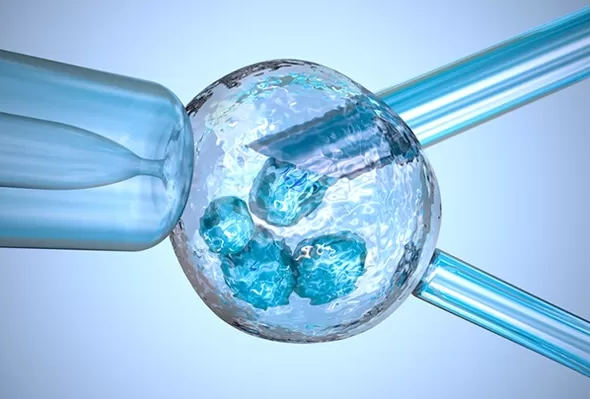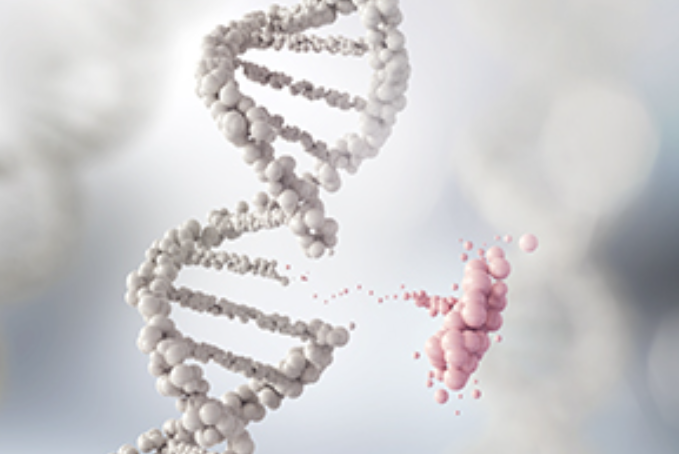What is egg donation?
In recent years, I have come into contact with many families, and their decision to borrow eggs was not a relaxed one. Some people have experienced five or six years of IVF failure, some have undergone ovarian removal surgery, and some have lost their "vitality" because they are too old.
At this point, egg donation becomes the only hope. Although it is not one's own egg, the process of conception and nurturing is still real and complete. This child is still the treasure that this family wholeheartedly hopes for.

What is egg donation (borrowing eggs)? Don't overthink it, simply put, a healthy young woman lends her eggs to help another woman who, for various reasons, cannot conceive with her own eggs. The doctor will retrieve these eggs, send them to the laboratory, combine them with sperm, wait for them to become embryos, and then 'implant' them into another mother's uterus, waiting for a miracle to slowly happen.
It sounds a bit like science fiction, but in reality, it is already a very mature and common medical technology. Especially in places like the United States and Canada, egg donation combined with in vitro fertilization (IVF) technology has helped thousands of families achieve their reproductive dreams.
Why do some people need someone else's eggs? If you ask me, in fact, many people do not consider borrowing eggs from the beginning. They often have to accept the fact that their eggs cannot be used after trying many methods without success.
I have seen several typical reasons:
As one gets older, ovarian function begins to "shut down", egg quality decreases, and it is difficult to conceive due to congenital ovarian development abnormalities, or premature ovarian failure caused by chemotherapy or radiation therapy. The ovaries have been irreversibly damaged and have been removed, carrying genetic diseases such as fragile X chromosome syndrome. They are worried that their children will also be affected. For same-sex families or single women without egg sources, egg donation is not an "alternative solution", it is the "only possibility".
Who can donate eggs? Not everyone can donate eggs, not just anyone can do it. To be honest, our screening of donors is very, very strict. Why? Because this is not only responsible for one person, but also for the future of a family and a child.
Generally, eligible women must meet these basic requirements:
Between the ages of 21 and 30 (with a significant decrease in egg quality beyond 35), there is no history of genetics, good physical health, normal BMI, normal menstrual cycle, good ovarian function, no smoking, alcohol abuse, or drug use. We are willing to cooperate throughout the entire cycle and have a sense of responsibility. We also undergo a full set of medical examinations, including hormone levels, infectious disease screening, genetic testing, and even psychological evaluation.
How does the whole process go? The first step, screening, is mainly to determine whether she is suitable for egg donation. The doctor will check her blood type, hormones, AMH levels (to determine ovarian reserve), as well as perform ultrasound, family history investigation, and genetic testing. If all of these are okay, you still need to see a psychologist to talk and see if she understands the meaning of egg donation and whether there is any psychological burden.
The second step is to promote ovulation by administering injections (one injection per day for about 10-12 consecutive days), allowing the ovaries to grow multiple mature follicles in one cycle. During this period, it is necessary to frequently visit the clinic for B-ultrasound and blood tests. The doctor will adjust the dosage in real time to ensure both effectiveness and safety.
At the end, a "rupture needle" will be arranged, and the surgery day will begin 36 hours later.

The third step is egg retrieval, which is a minimally invasive surgery typically performed under intravenous anesthesia. The doctor will use a thin puncture needle to pass through the ovary through the vagina and extract mature follicles. The whole process takes more than ten minutes, and after waking up and resting for one or two hours, you can go home.
For donors, this day is crucial and easy. For the recipient family, the arrival of eggs on this day is like "igniting hope".
Step four, after fertilization and transplantation, the egg will be taken out and sent to the laboratory to combine with sperm and be cultured into an embryo. On the third or fifth day, the best quality one will be selected and transplanted into the uterus of the recipient mother. The success of embryo implantation depends on the timing of the subsequent pregnancy test.
To whom should we donate? There are two forms of egg donation:
Anonymous donation: The egg donor and recipient do not know each other and are usually matched by the organization. When making a selection, factors such as photos, educational background, height and weight will be considered. Designated donation: between relatives and friends, such as older sister to younger sister, best friend to best friend - this type of trust is high, but the legal and psychological pressure is also greater. Regardless of the method, everyone must sign a good agreement, clearly stating the boundaries of responsibility and legal relationships, to ensure that there are no worries in the future.
The success rate is not "100%", but it is not as low as you think. Another question we are most often asked is: "What is the success rate of egg donation in vitro
The answer is: much higher than the regular test tube cycle.
Because the eggs used are from young and healthy women, the success rate of most egg donation cycles can reach 60% -75% (single embryo transfer), or even higher. You heard me right, this data far exceeds the average success rate of 40 year old women doing IVF themselves (usually less than 20%).
Comparison of success rates of embryo transfer in different age groups (data from SART): The success rate of embryo implantation in women over 40 years old is 15% -20% for self fertilization, 35% -45% for 35 year old women, and 65% -75% for self fertilization using eggs from 25 year old donors. In other words, for some families who have tried several times but have not succeeded, egg donation is not a "second best" option, but an opportunity to "double efficiency".
Of course, don't take it as a 'success package' solution either. No matter how good the embryo quality is, the uterus environment should be awesome, the body hormone should be appropriate, and the psychological state should be stable - these factors, we will also help you control together.
In terms of the law, we cannot be careless. No matter how emotional we say it, when it comes to reality, it still depends on the bottom line of the law. Many countries, including the United States, Canada, Ukraine, etc., have clear regulations on egg donation:
The egg donor does not have custody and legal responsibility, and the recipient enjoys complete parental identity. The egg donation process requires the participation of a lawyer and the signing of legal documents. Legitimate egg donation must be voluntary, non coercive, and non monetary transactions (in some countries). Some places do not allow designated donations, some countries allow compensation, and some do not allow commercial egg donation. Therefore, it must be carried out under the premise of legality and compliance.
To be honest, when it comes to egg donation, no family is willing to give it a try.
But you haven't given up, and there are people in this world who happen to be willing to entrust a part of themselves to you to nurture new life.
If you are also on this road, may you no longer be alone. We will do our best to match you with suitable donors, establish professional and safe medical procedures, and safeguard this hard-earned hope.
如果您对供卵、代孕有任何疑问,欢迎扫码联系我们。


 简体中文
简体中文